Dwarfism advocate Yarraka Bayles establishes suicide support group
This Brisbane mum didn’t even think her son knew what suicide was when he made his first attempt at the age of six.
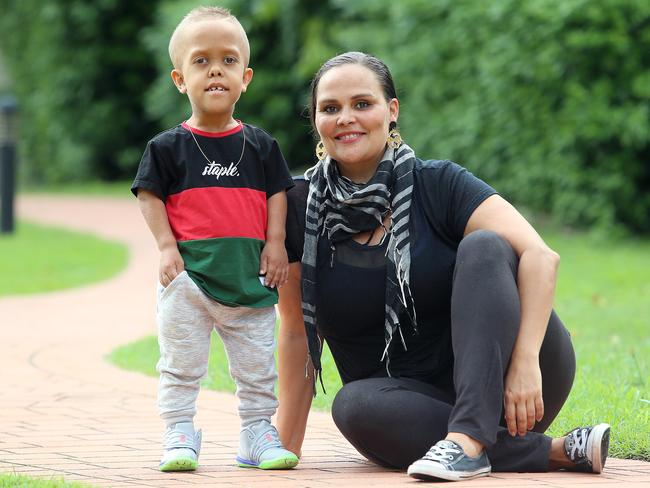
South West
Don't miss out on the headlines from South West. Followed categories will be added to My News.
YARRAKA Bayles will never forget the first time her son tried to take his own life.
Quaden - who has achondroplasia, the most common form of dwarfism - was just six-years-old when she walked in on him.
“I was so shocked. I honestly didn’t think he would even know what or how at six years old,” she said.
DWARFISM BULLIES WON'T SILENCE MUM'S EDUCATION CAMPAIGN
BRISBANE FUNERAL DIRECTOR'S SUICIDE PREVENTION VIDEO
When it happened, Quaden and Ms Bayles were away from their Brisbane home on holiday following the death of her father and indigenous rights activist Tiga Bayles.
“Quaden would say he wished he was dead, and that started when he was six,” she said.
“His father had also been due to have a baby boy, and all Quaden ever wanted was to be a big brother. When that baby was stillborn, that really hit him hard,” Ms Bayles said.
“Quaden thought if he went to heaven, then he’d be with his Pop and his little brother.”
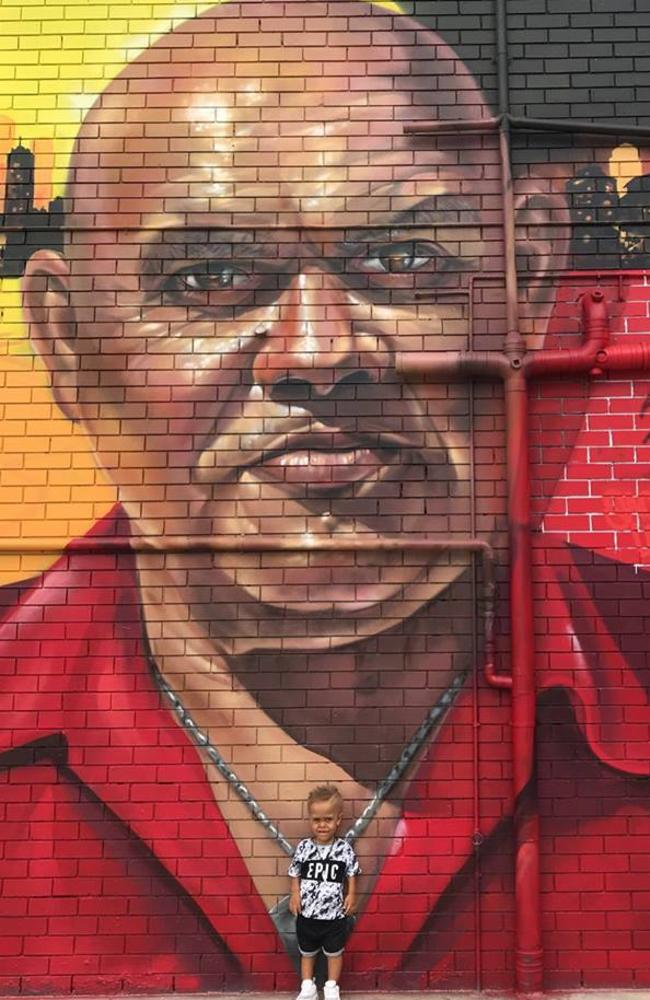
But that horrific day wouldn’t be the last time Quaden would try to take his own life, and he made five more attempts in the next two years.
“I’ve explained to him that once you go, there’s no coming back - you’re gone forever - but he still kept trying,” Ms Bayles said.
“When he was seven, the bullying at school started. Grade Two last year was the toughest year of all. That’s when he found out what the word ‘midget’ meant and realised they were calling him that.”
Ms Bayles has long been a vocal advocate for indigenous issues and dwarfism, and despite her confusion at the time, she decided - with Quaden’s permission - to speak out about this too.
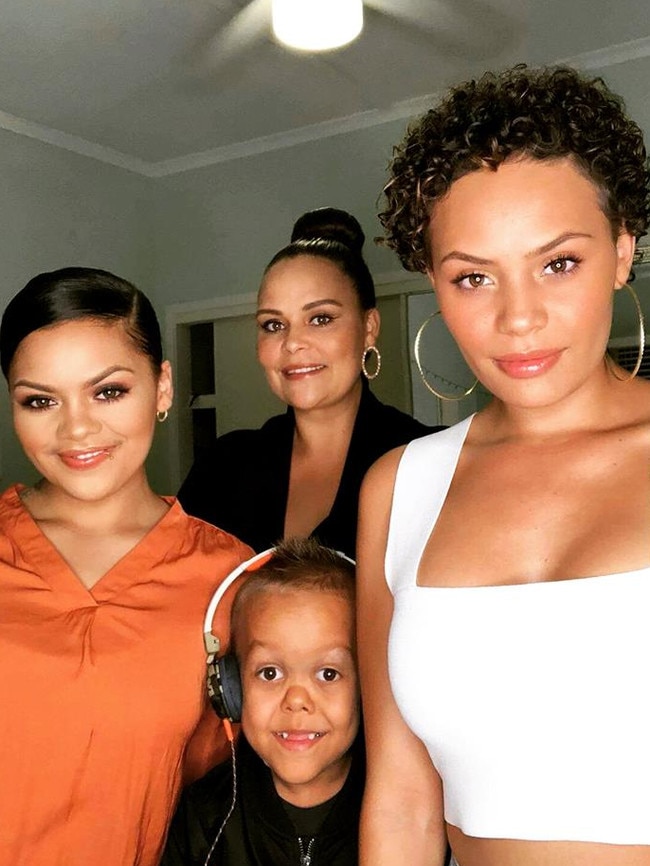
“At first, I didn’t know what to do or where to go. I felt like I was failing as a mum. I wondered what I was doing wrong and why he feels this way. Then I realised how common it is,” she said.
“I know it’s not my parenting. I work my arse off - I have two jobs, I study, I make him a part of everything so he’s included, but trying to understand an eight-year-old trying to make sense of it all... He hates having to deal with his diagnosis and being different and being bullied.”
Despite feeling apprehensive at first, Ms Bayles doesn’t regret asking for help, and hopes speaking out will help smash the stigma associated with suicide.
“It was the hardest thing to speak up, especially about this. It’s like shining a spotlight on all your inadequacies and you’re thinking ‘what am I not doing right?’,” she said.
“You’ve just got to find the courage to speak up, and not see it as a sign of weakness to ask for help because it’s actually quite courageous. We’re glad we spoke up because now a lot of other people are speaking up too.”
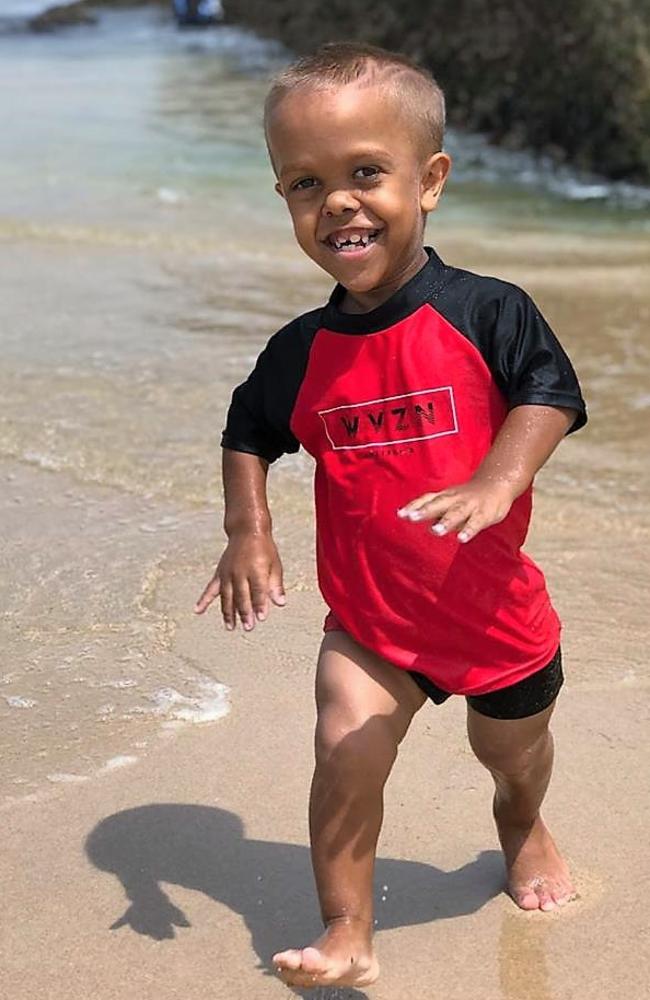
“In the Aboriginal community, it’s what we call sorry business. We’re constantly dealing with funerals and supporting family after a loss, so Quaden’s been surrounded by it. Our life expectancy is 15-20 years behind other Australians. The kids are really bearing the brunt so it’s hard for us as parents to be able to protect them.”
Ms Bayles connected with child mental health workers and indigenous counsellors, but thought there was more she could do for others in her community.
She established a support group for young people and their families who’ve been impacted by suicide, along with an online Facebook page called Brisbane S.O.S.
“We’ve noticed a trend especially in young boys aged between eight and 13 that are probably in the highest risk in our community at the moment,” she said.
“We had an aunty in our support group whose nephew took his own life at nine.”
“We had a 12-year-old come to the meeting with fresh scars on his wrists. Kids need to be able to feel loved and supported no matter what they’re going through, and that’s what we’ve been able to provide for them because parents don’t know how to deal with it - and neither did I until it happened and we started reaching out and the support has been amazing.”
“We’ve got to take it into our own hands, because waiting for government or other organisations - it’s just not happening. There’s not enough funding hitting the ground and the grass roots community organisations and that’s where we’re going to do it ourselves because no-one else is going to do it for us. If we don’t try to do it for ourselves and save our own kids, then we can’t expect anyone else to.”
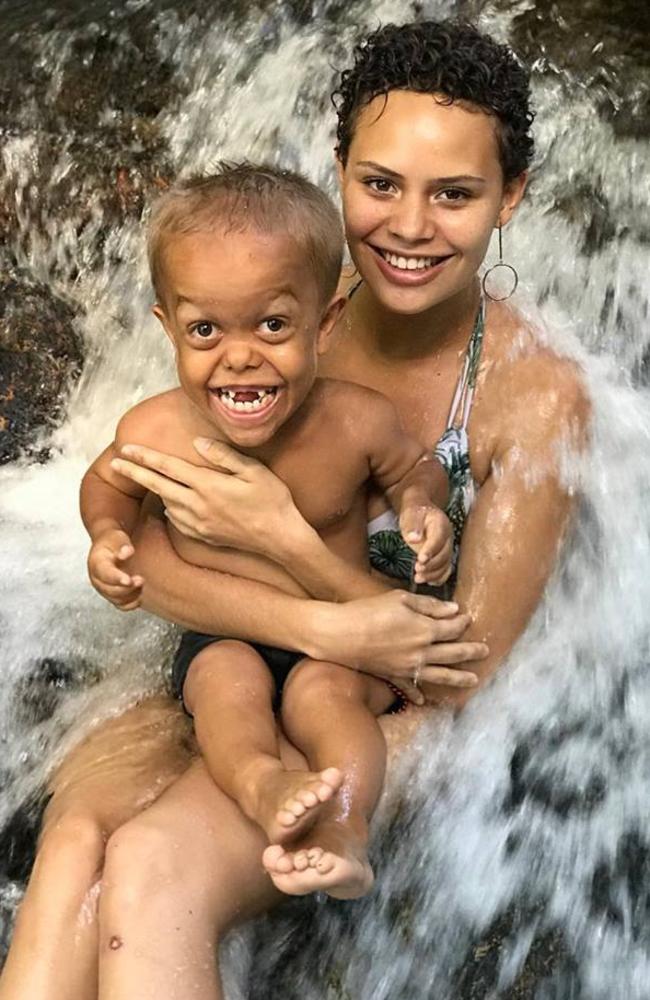
After yet another youth suicide in her community, Ms Bayles put out a call to action last month and had 75 community members turn out in support.
“We identified that culture can heal, and I can testify to that. The last time I touched drugs and alcohol was 12 years ago when I started learning my language and my song and dance, and that filled that void that drugs and alcohol once did. Now we’re meeting every Sunday in Musgrave Park and introducing culture back into our kids’ lives,” she said.
“We have a barbecue and culture activities, whether it’s an instrument or a skill, singing or dancing - we’ve all got something we can offer. When we bring that all together, it’s just magic.”
Plans are also being made to organise cultural camps for indigenous youth, along with a free workshop in the community in May on recognising the warning signs of suicide.
“If we can help save as many lives as possible and support the families dealing with it, then that’s all we can hope for. I’m very optimistic that we’re going to see a huge drop in suicide numbers,” she said.
Ms Bayles said at a recent outreach, a relative who had lost her son to suicide brought his ashes to the meeting.
50C A DAY FOR 6 MONTHS: SUBSCRIBE TO SOUTH-WEST NEWS & THE COURIER-MAIL
“She spoke about going to visit him and finding him. He was in so much pain and I think that really registered with Quaden, because he saw how much we loved him and how heartbroken we’d be if anything happened to him,” she said.
“Another relative of Quaden’s attempted suicide and was left with severe brain damage, and he’s also seen the effects of that.”
Ms Bayles said Quaden hadn’t tried to self harm since December, and is now excited about the arrival of a new baby in the family.
“He’s been very good, and he’s excited about becoming an uncle. This will be his first little niece,” she said.
“This year compared to last year is a 95 per cent improvement. And he’s cheekier than ever.”
Ms Bayles has no regrets about asking for help, and encouraged others to do the same.
“If I didn’t speak up, honestly, I don’t think Quaden would be here,” she said.
“This year has been a huge change and it’s because of all the support and people reaching out. There’s always sunshine after the rain.”
If you or someone you know needs help, contact Lifeline on 131 114 or Beyond Blue on 1300 22 4636.


